This article was medically reviewed by Jennifer Boidy, RN. Jennifer Boidy is a Registered Nurse in Maryland. She received her Associate of Science in Nursing from Carroll Community College in 2012.
There are 9 references cited in this article, which can be found at the bottom of the page.
wikiHow marks an article as reader-approved once it receives enough positive feedback. In this case, 89% of readers who voted found the article helpful, earning it our reader-approved status.
This article has been viewed 206,217 times.
A tapeworm is a parasite that you can get from eating the undercooked meat of an infected animal. Tapeworms are often easy to treat, but they can cause some severe problems if left untreated.[1] If you are concerned that you may have a tapeworm, then the best thing to do is to see a doctor as soon as possible. There are also some symptoms that you can watch for that may indicate that you have a tapeworm, but it is necessary to get a diagnosis to be sure.
Steps
Identifying Symptoms
-
1Check for common symptoms. A tapeworm can cause a variety of different symptoms that mimic other medical conditions or it may cause no symptoms at all, so it can be hard to tell if you have a tapeworm by looking for symptoms. But being familiar with the most common symptoms may help you to determine if you need to see a doctor. Some of the common symptoms of tapeworm include:[2]
- abdominal pain
- nausea and/or vomiting
- diarrhea
- weight loss
- dizziness
- insomnia
- malnutrition
- jaundice (yellowish tinge to the skin and eyes)
-
2Examine your stools. One way to tell if you have a tapeworm is to examine your stools for pieces of the worm. If you notice any particles that look like grains of white rice, then you may have a tapeworm infection. These small white segments contain eggs from the tapeworm.[3]Advertisement
-
3Pay attention to your appetite. It is common to lose your appetite when you have a tapeworm, but some people experience an increase in appetite. This is more common in tapeworm that has been caused by eating undercooked beef or pork. Watch for any unusual changes in your appetite.[4]
-
4Look for anemia symptoms. Tapeworm caused by eating undercooked fish may lead to a vitamin B12 deficiency because the tapeworm may be sucking up all of your vitamin B12. This may cause you to become anemic because your body needs vitamin B12 to make red blood cells.[5] Symptoms of anemia caused by a vitamin B12 deficiency include:
- pins and needles sensation in your hands and feet
- loss of sensation in your hands (no sense of touch)
- wobbly walk and trouble walking
- feeling clumsy and stiff
- dementia[6]
-
5Watch for symptoms of a larvae infection. In some cases of tapeworm, the larvae may hatch and work their way through your intestinal wall and into other parts of your body. There are different symptoms associated with this type of tapeworm and they include:[7]
- frequent, painful coughing
- headaches
- seizures
- fever
- allergic reactions such as wheezing, sneezing, itching, a rash, and swelling[8]
Getting a Diagnosis
-
1Make an appointment with your doctor. Although tapeworm has some obvious symptoms, the only way to be sure that you have a tapeworm and not some other parasite or virus is to see your doctor for a diagnosis. Your doctor will do a physical examination and order lab work to confirm whether or not you have a tapeworm.
-
2Collect a stool sample if necessary. One way that your doctor can determine whether or not you have a tapeworm is by ordering a lab analysis of your feces. Before your appointment, ask if you will need to collect a stool sample.[9]
-
3Get a blood test. If a stool sample shows negative results and you have symptoms that indicate that you may have a tapeworm, then you may need to get a blood test. A lab analysis of your blood will show whether or not you have been infected with a tapeworm.[10]
-
4Undergo an imaging test. If you do have a tapeworm, then your doctor may want you to have a CT (computed tomography), ultrasound, or MRI (magnetic resonance imaging) to see if a tapeworm has caused damage to other parts of your body.[11] These tests are not painful, but they may be a little uncomfortable and time consuming.
Treating Tapeworm
-
1Take medication to help pass the tapeworm. Your doctor will prescribe a medication to help you pass the tapeworm. Carefully follow your doctor's instructions for how to take your medication. The most common medications prescribed to treat a tapeworm infection include:[12]
- Praziquantel (Biltricide). This medication works by killing certain worms. Do not take this medication if you are pregnant or breastfeeding, allergic to any ingredient in the medication, have a worm infection in your eye, or if you are on rifampin.[13]
- Albendazole (Albenza). This medication prevents newly hatched worms from growing in your body. It treats specific types of tapeworm infections, including those you get from eating pork and from being around infected dogs.[14]
- Nitazoxanide (Alinia). This medication is mainly used to treat parasites that you pick up from swimming in a lake or spending time in other moist places.[15]
-
2Expect some pain and cramping. If you have to pass a large tapeworm, it is likely that you will have some pain and cramping.[16] This is normal, but make sure that you call your doctor if the pain becomes severe.
-
3See your doctor for a follow-up visit. To ensure that you are tapeworm free, your doctor will need to check your stools again one month following your treatment and then again three months after your treatment.[17] Make sure that you keep this appointment even if you are feeling fine.
Expert Q&A
Did you know you can get expert answers for this article?
Unlock expert answers by supporting wikiHow
-
QuestionShould a person seek emergency help for this at an emergency room, or call a doctor?
 Jennifer Boidy, RNJennifer Boidy is a Registered Nurse in Maryland. She received her Associate of Science in Nursing from Carroll Community College in 2012.
Jennifer Boidy, RNJennifer Boidy is a Registered Nurse in Maryland. She received her Associate of Science in Nursing from Carroll Community College in 2012.
Registered Nurse The symptoms of a tapeworm infection are generally mild and you may not even notice them. Left untreated, an infection can lead to serious medical conditions. Call your doctor as soon as you can if you suspect you’ve been been exposed so it can be treated early. If you develop fever, signs of bacterial infection, allergic reaction, or neurological symptoms, such as seizure, balance problems, or confusion, seek emergency medical attention.
The symptoms of a tapeworm infection are generally mild and you may not even notice them. Left untreated, an infection can lead to serious medical conditions. Call your doctor as soon as you can if you suspect you’ve been been exposed so it can be treated early. If you develop fever, signs of bacterial infection, allergic reaction, or neurological symptoms, such as seizure, balance problems, or confusion, seek emergency medical attention.
Warnings
- Do not attempt to treat a tapeworm on your own. Tapeworm infections can be severe and they require proper medical attention.[19]⧼thumbs_response⧽
References
- ↑ http://www.webmd.com/digestive-disorders/tapeworms-in-humans
- ↑ http://www.nhs.uk/Conditions/Tapeworm-infections/Pages/Symptoms.aspx
- ↑ http://www.nhs.uk/Conditions/Tapeworm-infections/Pages/Symptoms.aspx
- ↑ http://www.nhs.uk/Conditions/Tapeworm-infections/Pages/Symptoms.aspx
- ↑ http://www.nhs.uk/Conditions/Tapeworm-infections/Pages/Symptoms.aspx
- ↑ http://www.webmd.com/a-to-z-guides/understanding-anemia-symptoms#1-3
- ↑ http://www.nhs.uk/Conditions/Tapeworm-infections/Pages/Symptoms.aspx
- ↑ http://www.nhs.uk/conditions/Allergies/Pages/Introduction.aspx
- ↑ http://www.webmd.com/digestive-disorders/tapeworms-in-humans
- ↑ http://www.webmd.com/digestive-disorders/tapeworms-in-humans
- ↑ http://www.mayoclinic.org/diseases-conditions/tapeworm/basics/tests-diagnosis/con-20025898
- ↑ http://www.mayoclinic.org/diseases-conditions/tapeworm/basics/treatment/con-20025898
- ↑ https://www.drugs.com/cdi/biltricide.html
- ↑ https://www.drugs.com/mtm/albenza.html
- ↑ https://www.drugs.com/mtm/alinia.html
- ↑ http://www.webmd.com/digestive-disorders/tapeworms-in-humans
- ↑ http://www.webmd.com/digestive-disorders/tapeworms-in-humans
- ↑ http://www.webmd.com/digestive-disorders/tapeworms-in-humans
- ↑ http://www.webmd.com/digestive-disorders/tapeworms-in-humans
About This Article
To tell if you have a tapeworm, look for symptoms like abdominal pain, nausea or vomiting, diarrhea, or weight loss. You may also notice changes to your appetite. If you’re still unsure, examine your stool for pieces of the worm, which may look like grains of white rice. If you suspect that you have a tapeworm, you should see your doctor right away to be diagnosed. Your doctor may collect a stool sample for testing. Keep reading for advice from our medical reviewer about the medications that your doctor may prescribe, like praziquantel or albendazole.
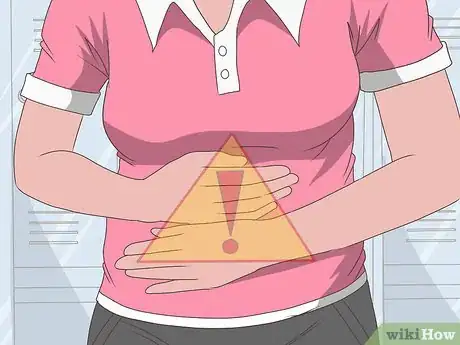
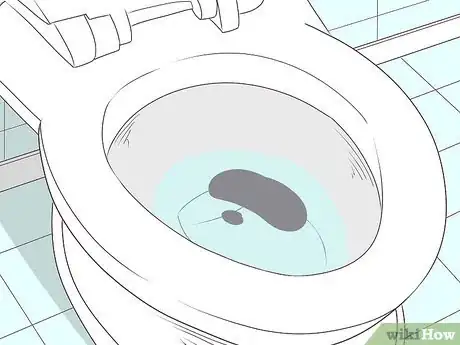

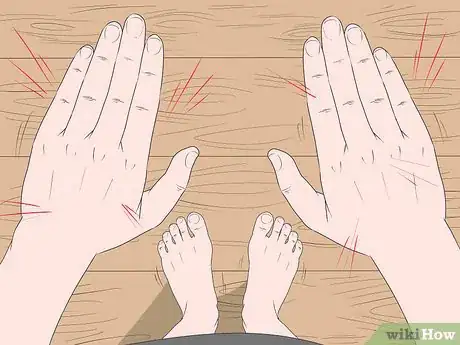

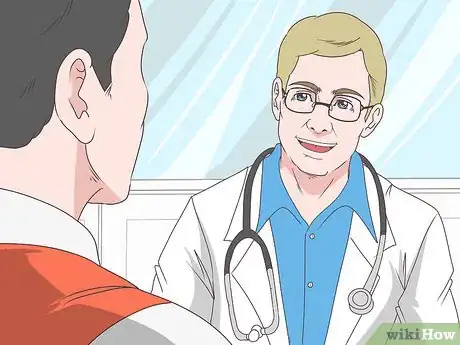
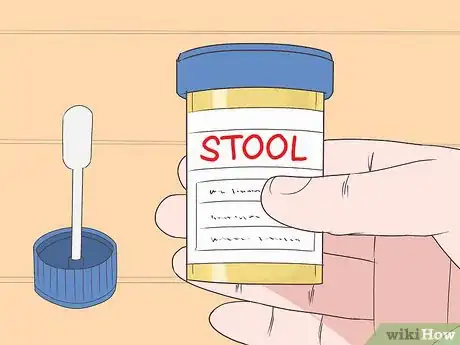
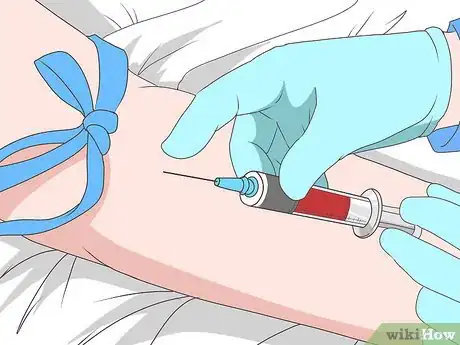
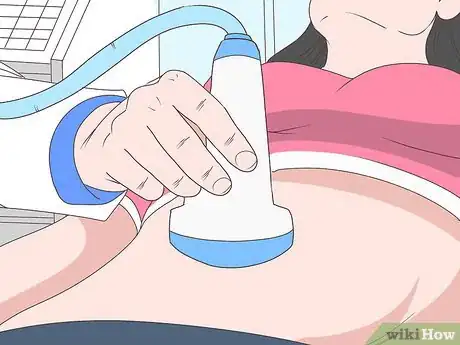
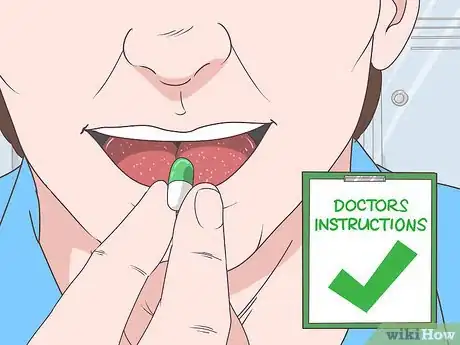
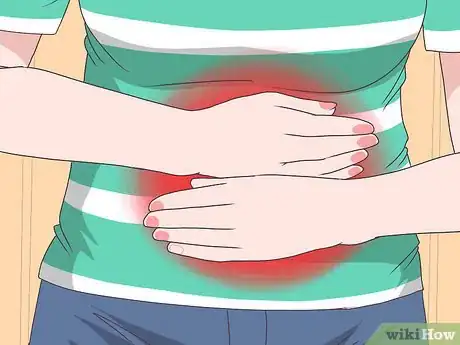



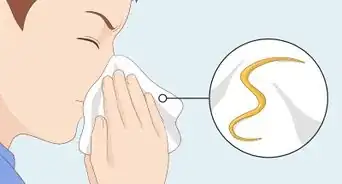
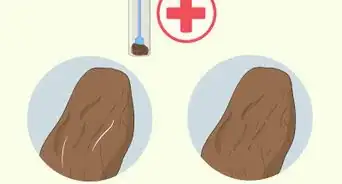





















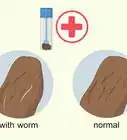



































Medical Disclaimer
The content of this article is not intended to be a substitute for professional medical advice, examination, diagnosis, or treatment. You should always contact your doctor or other qualified healthcare professional before starting, changing, or stopping any kind of health treatment.
Read More...